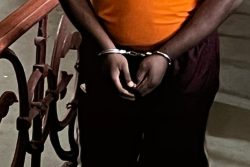Oscar Wilde, who spent a lifetime mocking sanctimonious people and urging them to be less righteous, once quipped that “a man cannot be too careful in the choice of his enemies.” Wilde declared that he chose friends with good looks and acquaintances with character but that intelligence was what he most valued in an enemy. Like many of his witticisms, the remark
contains an important kernel of truth, one that goes to the heart of many responses to the killings of the Charlie Hebdo staff in Paris earlier this week. Enemies matter, especially when they force us to define ourselves, and to determine what we really value in our societies, cultures, and
personal lives.
Politicians and public figures, especially those in liberal democracies, often excel at paying lip-service to freedom of expression, hymning its praises as the lifeblood of an open society and the oxgyen of democracy. When, however, our abstract principles are tested by offensive material –
whether spoken, sung, written, painted or filmed – or when individuals or groups face extended ridicule at the hands of others, many of us discover that the right to free speech is an extremely difficult freedom to maintain, perhaps even the most difficult, particularly within multicultural societies in which political, religious and cultural sensitivities are easily inflamed.
The cartoonists murdered earlier this week belonged to a radical, anarchist tradition of free speech that stretches right back to the French Revolution which holds that genuine artistic freedom requires the courage to mock sacred cows, often in the most tasteless and provocative ways. Charlie Hebdo’s willingness, some might have said eagerness, to operate in the vanguard of bad taste, and to offend every part of French society with equal relish, is what distinguished them from their peers.
In the best traditions of visual satire, rather than merely provoking its audience, Charlie Hebdo’s images often forced viewers to see their own unquestioned beliefs through sceptical eyes, and, occasionally, to concede that it wasn’t completely unreasonable to find aspects of one’s most cherished opinions, or even one’s religious faith, amusing or absurd.
Whether mocking Catholic views on contraception by having the Pope hold a condom aloft as though it were a communion wafer, or publishing a special “Sharia” edition “guest-edited” by the Prophet Mohammed – who warned readers that they would get “100 lashes if they didn’t die laughing” – the cartoonists’ point was that the freedom to laugh at ideas is, in itself, an essential freedom, that the freedom to disrespect other points of view is a fundamental freedom and inseparable from other political freedoms.
Cartoons linger in a way that written words rarely do, hence their importance. Over the years many Guyanese politicians learned the hard way that a single Hawley Harris image in this newspaper could overshadow anything that they said or did for weeks. The Guardian cartoonist Steve Bell is another exemplar of the art of caricature. His depictions of Tony Blair as a demented, vampiric “chickenhawk” were often among the Guardian’s most telling political commentary during the invasion and occupation of Iraq. More recently, Bell explained his decision to draw the current British prime minister, with an unfurled condom covering his head as a revelation that came to him after seeing Cameron’s face on an election billboard, and noticing his “total moral opportunism combined with a complete, engorged and erectile sense of his own responsibility.”
Unforgiving stuff, certainly, but no society that wishes to live with true freedom of opinion and expression can afford to be without it.
The principled refusal to take any vision – political, religious or cultural – seriously, was the great legacy of Charlie Hebdo’s cartoonists.
Despite the schoolboyish manner in which they articulated their dissent, it is undeniable that they defended one of modernity’s most valuable achievements, namely the freedom to think for oneself. Happily, their ideas and achievements will outlive them. Even before their own deaths in the subsequent police standoffs, the gunmen and their accomplices must surely have mourned their failure to silence the cartoonists’ vision. For, as the daughter of one of the murdered cartoonists poignantly observed:
“Papa is gone, Wolinski lives.”
In a New York Times Op-Ed on the Taliban attack that killed 148 schoolchildren in Pakistan earlier this month, the British writer Kenan Malik wisely argued that debates about Islamist violence miss the larger questions about “why political rage against the West takes such nihilistic forms today [and] why has radical Islam become its principal vehicle?”
Malik suggests that one reason is the dystopian turn taken by radical politics in recent decades: “In the past, racists often viewed modernity as the property of the West and regarded the non-Western world as incapable of modernizing. Today, it is radicals who often regard modernity as a Western product, and reject both it and the West as tainted goods.” Malik argues that this switch has transformed “anti-Western sentiment from a political challenge to imperialist policy to an inchoate rage against modernity. Many strands of contemporary thought, including those embraced by ‘deep greens’ and the far left, express aspects of such discontent. But it is radical Islam that has become the lightning rod for this fury.”
Malik’s insight undercuts a great deal of idle commentary on clashes between religions and civilizations. Although there has already been a narrowminded and regrettable backlash against French Muslims, in time the most memorable victim of the Charlie Hebdo shootings may well prove to be Ahmed Merabet, the French policemen, who happened to be Muslim, shot outside the offices of a magazine for courageously defending its employees’ freedom to mock his religion. Merabet’s sacrifice gets to the heart of the matter. Satire is intolerable to those who are absolutely convinced of their righteousness, and it is humourless ideologues who express their disapproval of other people’s ideas with violence and murder who are the true enemies of free speech, not the faithful adherents of any particular political vision, creed, or faith.









